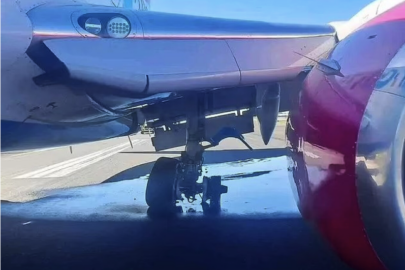by Michael Rubin
The F-35 Joint Strike Fighter is the newest generation air platform for the U.S. Air Force, Navy, and Marines. Lockheed-Martin, which builds the F-35, describes it as “a 5th Generation fighter, combining advanced stealth with fighter speed and agility, fully fused sensor information, network-enabled operations and advanced sustainment.” For both diplomatic reasons and to encourage sales, Lockheed-Martin subcontracted the production of many F-35 components to factories abroad. Many program partners—Australia, Canada, the United Kingdom, Denmark, for example—are consistent U.S. allies.
Turkey, however, is also part of the nine-nation consortium producing the plane, which gives Turkey access to the F-35’s technology. “As a program partner, Turkish industries are eligible to become suppliers to the global F-35 fleet for the life of the program. In total, F-35 industrial opportunities for Turkish companies are expected to reach $12 billion,” the warplane’s website explained. “Turkey plans to purchase 100 of the F-35A Conventional Takeoff and Landing variant. Its unsurpassed technological systems and unique stealth capabilities ensure that the F-35 will be the future of Turkish national security for decades to come.”
But is the F-35 safe with Turkey? In recent years, the Turkish government has leaked highly-classified information to America’s adversaries in fits of diplomatic pique. Back in 2013, for example, Turkey leaked to the Iranians the identities of Israeli spies in Iran. Danny Yatom, former head of the Mossad, told USA Today that the incident would damage U.S. intelligence efforts, “because we will be much more reluctant to work via Turkey because they will fear information is leaking to Iran… We feel information achieved [by Israel] through Turkey went not only to Israel but also to the United States.”
On July 19, the Pentagon criticized Turkey’s state-controlled news agency for exposing ten covert U.S. bases in Syria in a way that can enable both the Islamic State and Iranian-backed forces to target Americans. Bloomberg reported that the leak also detailed aid routes and equipment stored at each base.
Both these incidents raise serious questions about whether Turkey can be trusted with the F-35, especially given Turkey’s growing military and diplomatic ties to Russia, and the wayward NATO state’s recent cooperation with China as well. The United Kingdom’s Ministry of Defense is rightly concerned about the security implications of a plan to service its F-35s in Turkey, but such concern should only be the tip of the iceberg.
Should Turkey even receive F-35s and, to the extent the program relies on Turkish factories, is it time to stand up quickly a Plan B? To do otherwise might squander the billions of dollars already spent on the program, risk increasing President Recep Tayyip Erdoğan’s ability to blackmail the West, and potentially land America’s latest military technology on Kremlin desks.
Source: www.commentarymagazine.com


































